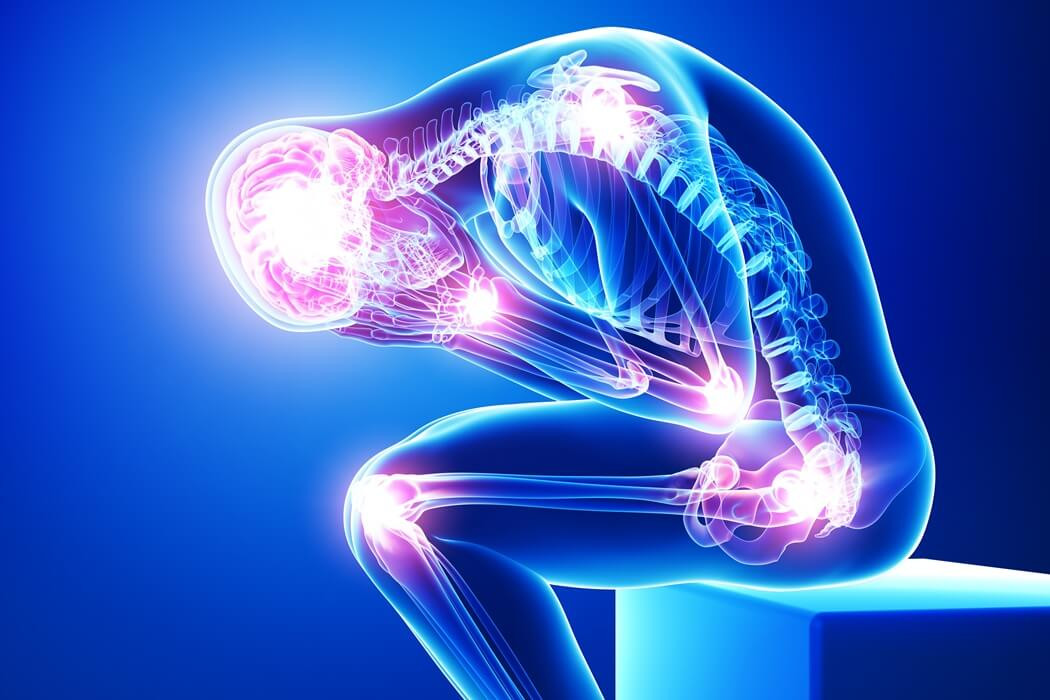Exploring Chronic Pain: A Comprehensive Overview and Valuable Perspectives
Florence, United States - January 26, 2024 / Keystone Healthcare and Wellness /
Chronic pain is a complex and debilitating condition that affects millions of people worldwide. In this article, we will delve into the nature, causes, and challenges of chronic pain, aiming to provide a comprehensive understanding of this often misunderstood ailment. From its definition to the latest insights into its management, we will explore it all. So, let's begin this journey into the world of chronic pain.
Defining Chronic Pain
Chronic pain is generally described as any persistent discomfort or ache that lasts for at least three to six months. Unlike acute pain, which is a normal response to injury and typically subsides as the body heals, chronic pain lingers long after the initial cause has been resolved.
The Difference Between Acute and Chronic Pain
To understand chronic pain better, it's crucial to differentiate it from acute pain. Acute pain is a temporary sensation, typically resulting from an injury or illness, and serves as a warning signal for the body to take action. Chronic pain, on the other hand, is an ongoing condition that persists beyond the expected healing period.
Causes of Chronic Pain
Chronic pain can have various causes, including underlying medical conditions, injuries, or even unknown factors. Some common causes include arthritis, fibromyalgia, nerve damage, and past injuries.
Common Conditions Associated with Chronic Pain
Several medical conditions are frequently associated with chronic pain, such as osteoarthritis, rheumatoid arthritis, and lower back pain. These conditions can lead to chronic pain, significantly impacting a person's quality of life.
The Impact of Chronic Pain
Living with chronic pain can be physically, emotionally, and socially challenging. It can limit mobility, disrupt sleep, and lead to depression and anxiety. Understanding the holistic impact of chronic pain is essential for proper management.
Diagnosis and Assessment
Diagnosing chronic pain involves a comprehensive evaluation, including medical history, physical examination, and sometimes imaging tests. Assessing the pain's nature and intensity helps healthcare providers determine the most appropriate treatment.
Treatment Options
The management of chronic pain often requires a multifaceted approach. Here, we'll explore various treatment options, including medications, physical therapy, psychological approaches, alternative therapies, lifestyle modifications, and coping strategies.
Medications for Chronic Pain
Medications can help alleviate chronic pain, but they should be used cautiously to avoid dependence or addiction. Common pain medications include opioids, nonsteroidal anti-inflammatory drugs (NSAIDs), and anticonvulsants.
Physical Therapy and Rehabilitation
Physical therapy can improve mobility and reduce pain in individuals with chronic conditions. Techniques such as exercise, manual therapy, and electrical stimulation may be part of a personalized treatment plan.
Psychological Approaches
Chronic pain often has a psychological component. Cognitive-behavioral therapy (CBT) and other psychological interventions can help individuals manage pain and improve their overall well-being.
Alternative Therapies
Complementary therapies like acupuncture, massage, and chiropractic care can provide relief for some chronic pain sufferers. These approaches aim to address the body's natural healing abilities.
Lifestyle Modifications
Lifestyle changes, such as maintaining a healthy diet, staying physically active, and managing stress, play a crucial role in managing chronic pain effectively.
Coping Strategies
Developing coping strategies is essential for individuals dealing with chronic pain. Techniques like mindfulness, relaxation exercises, and support groups can empower patients to better manage their pain.
The Importance of Support
A strong support network, including family, friends, and healthcare providers, can make a significant difference in an individual's ability to cope with chronic pain.
Final Thoughts
In conclusion, chronic pain is a complex and challenging condition that affects millions of people worldwide. Understanding its nature, causes, and management options is essential for those living with this condition. By adopting a holistic approach to chronic pain management and seeking appropriate support, individuals can improve their quality of life and regain control over their well-being.
Frequently Asked Questions (FAQs)
1. Can chronic pain be completely cured?
Chronic pain may not always be curable, but with the right treatment and management strategies, it can often be effectively controlled, allowing individuals to lead fulfilling lives.
2. Are there any natural remedies for chronic pain?
Yes, several natural remedies, such as herbal supplements, acupuncture, and yoga, may help alleviate chronic pain. However, it's essential to consult with a healthcare professional before trying any alternative therapies.
3. Is medication the only option for managing chronic pain?
No, medication is just one of many options for managing chronic pain. Physical therapy, psychological approaches, lifestyle modifications, and support networks can also play significant roles in pain management.
4. How can I support a loved one with chronic pain?
Supporting a loved one with chronic pain involves empathy, active listening, and understanding their limitations. Encouraging them to seek professional help and providing emotional support can make a substantial difference.
5. Where can I find more information and resources on chronic pain management?
For additional information and resources on chronic pain management, you can visit reputable medical websites, consult with healthcare providers, or join online support groups dedicated to chronic pain sufferers.
In this comprehensive guide, we've explored the world of chronic pain, from its definition and causes to its impact and management. By understanding the nature of chronic pain and the various approaches to its treatment, individuals can take proactive steps toward regaining control over their lives and finding relief from this challenging condition.

Contact Information:
Keystone Healthcare and Wellness
491 W. Cheves St., Ste. B
Florence, SC 29501
United States
Brenda Kennedy
(843) 662-8000
https://www.keystonehcw.com/
Original Source: https://www.keystonehcw.com/media-room/#/media-room


